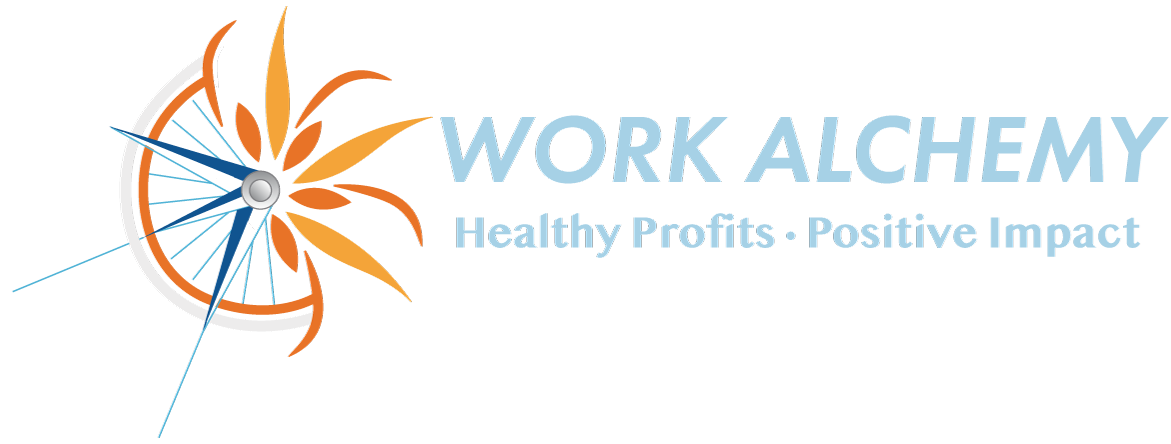 Ugh. Failure. A nasty word. At least, we associate it with all kinds of negative things. It didn’t work. I did the wrong thing. It’ll never work. The end.
Ugh. Failure. A nasty word. At least, we associate it with all kinds of negative things. It didn’t work. I did the wrong thing. It’ll never work. The end.
We tend to get all stoppered up when something doesn’t work. It slows our momentum. It feels bad. It feels final.
Failure happens. If you’re in business, there will be some things that you try that don’t work. Experimentation is just part of the process. If you’re really in there, trying things, taking calculated risks, pushing the edge of your comfort zone, some things will not work out as you wish or plan.
I’ve tried things in my business that just didn’t work out as I’d hoped. Some time ago, I offered a course. I developed the content. I sunk everything I had learned from my own experience and others into it. As I worked on it, it evolved and grew until I knew I had really great content. Something valuable. Something unique. Something that my clients would benefit from. I was excited to offer it.
Yet, when I promoted it, it just didn’t take off. I finally decided to pull the plug.
Dang, I was disappointed. I questioned the course. I questioned myself. I was really getting down about it. I spent about 2 days mired in, ‘what if’s’ and ‘if only’s’. Not good stuff.
I don’t do well when I get mired in negatives. My energy drops. I lose motivation. I have difficulty seeing with clarity. I know the same happens for you.
So, do everything you can to not spend time there. Clear your head. Change your environment, so you can change your thinking. Walk. Ask yourself, how do I want to feel about this? How can I look at this situation and see it differently, see it as something that will benefit me and my business?
When I did that, I realized, failure is not the end. It’s just the beginning. What can I do with this experience, was my new question. What can I learn from it? What can I do with that learning?
So I sat myself down and I made a list of every possible reason why the course didn’t sell. Timing, topic, promotion, audience. The whole gamut. Every aspect I could think of went on that list.
Then I took a hard look at each possible reason. I was tough on myself, the course, and the decisions I’d made about promotion and timing. Was this an explanation that made sense? Was this a contributing factor?
Next, I pulled out every explanation that was reasonable. When I put them all together, a picture emerged. And it made sense why the course didn’t fly.
Final and most important step: what did I learn from this? What would I do differently next time? What information, resources, experience do I now know I’d like to have, to change future outcomes? What can I do right now that would start me on that new path?
That process of beginning from the point of what looked like failure has helped me time and time again. It’s not the end. It’s just the beginning: taking what happened, learning from it, and applying all the learning from that point on.
When you choose to learn from every experience, failures are never the end. They are just part of the journey. And each one is rich in what it ultimately teaches you.
If you’re not trying new things, and sometimes failing, you’re not really in the game. You’re playing it safe. That won’t serve you, or your clients.
To really succeed in business, you need to take some risks. You need to try things that you haven’t tried before. When you do, you learn. You grow. You expand your experience.
Take what you’ve learned, and make your business even better. You, and your clients, benefit.
What do you do when something you try doesn’t work in your business? We all gain when we share ideas. Let us know in the comments below!
___________
Here’s your Alchemy Assignment, your chance to transform what you learned in this article into awareness and action for you and your business:
Choose a situation that felt like failure in your business. Something that just didn’t work out. Write down every reason you can think of why it didn’t work. Then be honest with yourself as you go through each one, and look at whether it was a contributing factor, a reasonable explanation for why things didn’t work the way you’d hoped. When you pull all the contributing factors out and look at them together, you’ll get a picture of what led to the outcome. Now, the most important part: what would you do differently next time? Write it all down, to solidify your learning. Then take the first step to do things differently.
